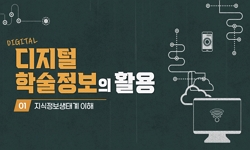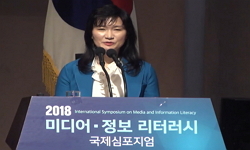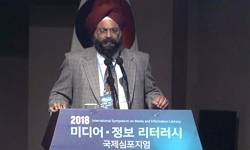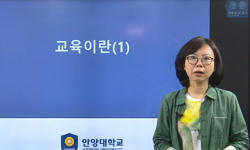Consumers always look around for information before making a purchase decision. The word-of-mouth is a voluntary source of information that plays an important role in consumer's decision making process. Social commerce, which has emerged with the tren...
http://chineseinput.net/에서 pinyin(병음)방식으로 중국어를 변환할 수 있습니다.
변환된 중국어를 복사하여 사용하시면 됩니다.
- 中文 을 입력하시려면 zhongwen을 입력하시고 space를누르시면됩니다.
- 北京 을 입력하시려면 beijing을 입력하시고 space를 누르시면 됩니다.
https://www.riss.kr/link?id=T15510013
- 저자
-
발행사항
서울 : 중앙대학교 대학원, 2020
-
학위논문사항
학위논문(석사) -- 중앙대학교 대학원 , 미디어커뮤니케이션학과 미디어커뮤니케이션전공 , 2020. 2
-
발행연도
2020
-
작성언어
한국어
- 주제어
-
발행국(도시)
서울
-
기타서명
(The) effect of social commerce Wom information characteristics and user information literacy on information acceptance and Re-Wom intention : focused on china's experience-based social commerce app Xiaohongshu
-
형태사항
iv, 93 p. : 삽화 ; 26 cm
-
일반주기명
중앙대학교 논문은 저작권에 의해 보호받습니다
지도교수: 이숙정
참고문헌수록 -
UCI식별코드
I804:11052-000000231642
- DOI식별코드
- 소장기관
-
0
상세조회 -
0
다운로드
부가정보
다국어 초록 (Multilingual Abstract)
Therefore, this study selected the experience-based social commerce app, Xiaohongshu, which is gaining considerable popularity in China these days, and approached from the process of information exploration in social commerce to find out how oral information characteristics (consensus, vividness, neutrality, expertise, homophily) and information literacy affect information acceptance and re-WOM intention. This study conducted a survey of people who had used Xiaohongshu to find oral information in one year, and a total of 366 valid questionnaires were retrieved and analyzed through SPSS 23.0. The main findings are as follows.
First, the analysis results showed that the WOM information characteristics of social commerce had the positive effect on the information acceptance in proportion to the neutrality of WOM information and the perceptual sender's expertise and homophily. Second, the consensus of online WOM information and the perceptual sender's expertise and homophily showed a significant positive effect on re-WOM intention. In addition, the information acceptance was found to have a largest positive effect on the re-WOM intention. Third, the moderating effect of information literacy was revealed only on the relationship between perceived information provider expertise and information acceptance, and between the consensus of online WOM information and re-WOM intention. Groups with low information literacy were more affected by the perceived expertise in accepting WOM information than those with high information, and were more affected by the consensus of online WOM information in re-WOM intention.
This study revealed a direct relationship between online WOM characteristics of social commerce and the acceptance of information and re-WOM intention. In addition, this study examined the moderating effect of user information literacy, which was hardly covered in previous studies on the effect of online WOM.
Consumers always look around for information before making a purchase decision. The word-of-mouth is a voluntary source of information that plays an important role in consumer's decision making process. Social commerce, which has emerged with the trend of SNS, can be seen as a new form of marketing that is well utilizing oral activities among consumers. Existing studies related to social commerce have mainly been conducted on the impact of co-purchasing and there is a lack of exploration on other types of social commerce. In addition, social commerce has grown based on oral influences, but existing studies lack of research on the effects of oral information. Especially in the Web2.0 era, which emphasizes the user's activeness, the characteristics of users can also affect the word-of-mouth effect so much that it can not be overlooked.
Therefore, this study selected the experience-based social commerce app, Xiaohongshu, which is gaining considerable popularity in China these days, and approached from the process of information exploration in social commerce to find out how oral information characteristics (consensus, vividness, neutrality, expertise, homophily) and information literacy affect information acceptance and re-WOM intention. This study conducted a survey of people who had used Xiaohongshu to find oral information in one year, and a total of 366 valid questionnaires were retrieved and analyzed through SPSS 23.0. The main findings are as follows.
First, the analysis results showed that the WOM information characteristics of social commerce had the positive effect on the information acceptance in proportion to the neutrality of WOM information and the perceptual sender's expertise and homophily. Second, the consensus of online WOM information and the perceptual sender's expertise and homophily showed a significant positive effect on re-WOM intention. In addition, the information acceptance was found to have a largest positive effect on the re-WOM intention. Third, the moderating effect of information literacy was revealed only on the relationship between perceived information provider expertise and information acceptance, and between the consensus of online WOM information and re-WOM intention. Groups with low information literacy were more affected by the perceived expertise in accepting WOM information than those with high information, and were more affected by the consensus of online WOM information in re-WOM intention.
This study revealed a direct relationship between online WOM characteristics of social commerce and the acceptance of information and re-WOM intention. In addition, this study examined the moderating effect of user information literacy, which was hardly covered in previous studies on the effect of online WOM.
국문 초록 (Abstract)
따라서 본 연구는 중국 소셜커머스 시장에 요즘 상당한 인기를 얻고 있는 경험기반형 소셜커머스 앱 '샤오홍슈'를 대상으로 소셜커머스에서의 정보탐색과 처리 과정으로부터 접근하여 정보의 구전효과에 대해 연구하고자 하였다. 구체적으로 보면 샤오홍슈의 구전 정보특성인 메시지의 동의성, 생생함, 중립성 및 정보 제공자의 전문성과 동질성이 정보수용과 정보 재구전의도에 어떠한 영향을 미치는지, 또한, 이 과정에서 이용자의 정보리터러시의 조절효과가 있는지에 대해 알아보고자 하였다. 이를 위해 본 연구는 1년 간의 구전 정보를 찾으려고 샤오홍슈를 이용해본 적이 있는 사람을 대상으로 설문조사를 실시하였고 유효 설문지가 총 366부를 회수하여 SPSS 23.0을 통해 분석하였다. 주요 연구 결과는 다음과 같다.
첫째, 구전 정보특성인 중립성, 지각된 정보 제공자 전문성 및 동질성이 온라인 구전 정보에 대한 수용 정도에 직접적인 영향을 미치는 것을 밝혔다. 둘째, 온라인 구전 정보의 동의성, 구전 정보 제공자로부터 느껴진 전문성과 동질성이 재구전의도에 유의한 정적 영향을 미치는 것으로 밝혀졌으며 정보수용이 재구전의도에 영향을 준 요인 중 영향력이 가장 큰 것으로 나타났다. 셋째, 정보리터러시의 조절효과는 지각된 정보 제공자 전문성과 정보수용의 관계 및 구전 정보 동의성과 재구전의도 간의 관계에서만 밝혀졌다. 정보리터러시가 낮은 집단이 높은 집단보다 구전 정보에 대한 수용 정도에 지각된 전문성의 영향을 더욱 많이 받았으며 정보에 대한 재구전의도에 정보 동의성의 영향을 더욱 많이 받았다.
본 연구는 온라인 구전 정보특성과 정보수용 및 재구전의도 간의 직접적인 연관성을 밝혔다는 데에 의의가 있다. 또한, 본 연구는 온라인 구전 효과에 관한 선행연구에서 거의 다루지 않은 이용자 정보리터러시의 조절효과에 대해 확인해보았다는 점에서 의의를 찾을 수 있다.
일반적으로 구매 결정을 내리기 전에 소비자들이 관련된 정보를 찾는다. 구전은 개개인 간의 자발적으로 이루어져 정보 원천의 하나로서 소비자의 소비 결정 과정에서 아주 중요한 역할을 ...
일반적으로 구매 결정을 내리기 전에 소비자들이 관련된 정보를 찾는다. 구전은 개개인 간의 자발적으로 이루어져 정보 원천의 하나로서 소비자의 소비 결정 과정에서 아주 중요한 역할을 하고 있다. SNS의 대세와 함께 나타난 소셜커머스는 소비자 간의 구전 활동을 잘 활용하고 있다는 새로운 마케팅 형태로 할 수 있다. 소셜커머스와 관련된 기존 연구 중 공동구매형을 위주로 연구가 진행되어온 상태이며 소셜커머스의 다른 유형에 관한 탐구가 부족하다. 또한, 소셜커머스는 구전 영향력을 바탕으로 성장되었지만 기존 연구들은 구전 정보의 수용과 재구전에 관한 연구가 미흡하다. 특히 이용자의 능동성을 강조하는 web2.0시대에 역시 플랫폼 이용자의 특성이 구전 효과에 간과할 수 없을 정도로 영향을 미칠 수 있다.
따라서 본 연구는 중국 소셜커머스 시장에 요즘 상당한 인기를 얻고 있는 경험기반형 소셜커머스 앱 '샤오홍슈'를 대상으로 소셜커머스에서의 정보탐색과 처리 과정으로부터 접근하여 정보의 구전효과에 대해 연구하고자 하였다. 구체적으로 보면 샤오홍슈의 구전 정보특성인 메시지의 동의성, 생생함, 중립성 및 정보 제공자의 전문성과 동질성이 정보수용과 정보 재구전의도에 어떠한 영향을 미치는지, 또한, 이 과정에서 이용자의 정보리터러시의 조절효과가 있는지에 대해 알아보고자 하였다. 이를 위해 본 연구는 1년 간의 구전 정보를 찾으려고 샤오홍슈를 이용해본 적이 있는 사람을 대상으로 설문조사를 실시하였고 유효 설문지가 총 366부를 회수하여 SPSS 23.0을 통해 분석하였다. 주요 연구 결과는 다음과 같다.
첫째, 구전 정보특성인 중립성, 지각된 정보 제공자 전문성 및 동질성이 온라인 구전 정보에 대한 수용 정도에 직접적인 영향을 미치는 것을 밝혔다. 둘째, 온라인 구전 정보의 동의성, 구전 정보 제공자로부터 느껴진 전문성과 동질성이 재구전의도에 유의한 정적 영향을 미치는 것으로 밝혀졌으며 정보수용이 재구전의도에 영향을 준 요인 중 영향력이 가장 큰 것으로 나타났다. 셋째, 정보리터러시의 조절효과는 지각된 정보 제공자 전문성과 정보수용의 관계 및 구전 정보 동의성과 재구전의도 간의 관계에서만 밝혀졌다. 정보리터러시가 낮은 집단이 높은 집단보다 구전 정보에 대한 수용 정도에 지각된 전문성의 영향을 더욱 많이 받았으며 정보에 대한 재구전의도에 정보 동의성의 영향을 더욱 많이 받았다.
본 연구는 온라인 구전 정보특성과 정보수용 및 재구전의도 간의 직접적인 연관성을 밝혔다는 데에 의의가 있다. 또한, 본 연구는 온라인 구전 효과에 관한 선행연구에서 거의 다루지 않은 이용자 정보리터러시의 조절효과에 대해 확인해보았다는 점에서 의의를 찾을 수 있다.
목차 (Table of Contents)
- 제1장 서론 1
- 제1절 연구배경과 연구목적 1
- 제2절 논문의 구성 6
- 제2장 이론적 배경 7
- 제1절 경험기반형 소셜커머스와 온라인 구전 커뮤니케이션 7
- 제1장 서론 1
- 제1절 연구배경과 연구목적 1
- 제2절 논문의 구성 6
- 제2장 이론적 배경 7
- 제1절 경험기반형 소셜커머스와 온라인 구전 커뮤니케이션 7
- 1. 소셜커머스와 샤오홍슈 7
- 2. 정보탐색 원천으로서의 구전 활동 13
- 3. 온라인 구전의 효과: 정보수용과 재구전의도 17
- 제2절 소셜커머스 구전효과에 영향을 미치는 요인들 19
- 1. 온라인 구전 정보특성: 정보 메시지 특성 및 지각된 정보 제공자 특성 19
- 1) 메시지 특성 20
- 2) 지각된 정보 제공자 특성 25
- 2. 정보리터러시의 조절효과 29
- 제3절 연구문제와 연구모형 35
- 1. 연구모형 35
- 2. 연구문제 및 가설 35
- 제3장 연구방법 37
- 제1절 조사참여자와 조사절차 37
- 제2절 조작적 정의 및 측정 도구 37
- 1. 온라인 구전 정보특성 37
- 2. 정보수용 40
- 3. 구전 확산(재구전의도) 41
- 4. 정보리터러시 42
- 제3절 분석방법 44
- 제4장 실증적 분석결과 45
- 제1절 연구참여자 특성 45
- 1. 인구통계학적 특성 45
- 2. 샤오홍슈 이용행태 특성 46
- 제2절 타당성과 신뢰도 검증 결과 48
- 1. 요인분석 48
- 2. 신뢰도 분석 52
- 제3절 변수 간 상관 관계분석 54
- 제4절 가설검증 결과 55
- 1. 가설 1에 대한 검증결과 55
- 2. 가설 2에 대한 검증결과 56
- 제5절 정보리터러시의 조절 효과에 대한 검증 58
- 제5장 논의 및 결론 62
- 제1절 연구 결과 요약 및 시사점 62
- 제2절 연구의 한계 및 제언 67
- 참고문헌 69
- 부록: 설문지 81
- 국문초록 89
- Abstract 91
분석정보
연관 공개강의(KOCW)
-

디지털학술정보의활용
대구가톨릭대학교 조용완 -

정보사회와 인터넷윤리
이화여자대학교 박호연 -

민주시민 양성을 위한 미디어 정보 리터러시의 역할
한국교육학술정보원 Jin-suk Kang(중앙대학교), JungAe Yang(한국언론진흥재단), Amie Kim(경기도교육연구원) -

미디어 정보 리터러시 증진을 위한 국제적 전략 및 사례
한국교육학술정보원 Harinder Pal Singh Kalra(미디어정보리터러시 글로벌협의체), Shafika Isaacs(남아공 요하네스버그대학교), David Wright(영국 안전한인터넷센터) -

미래사회와 학습법
안양대학교 송윤희







